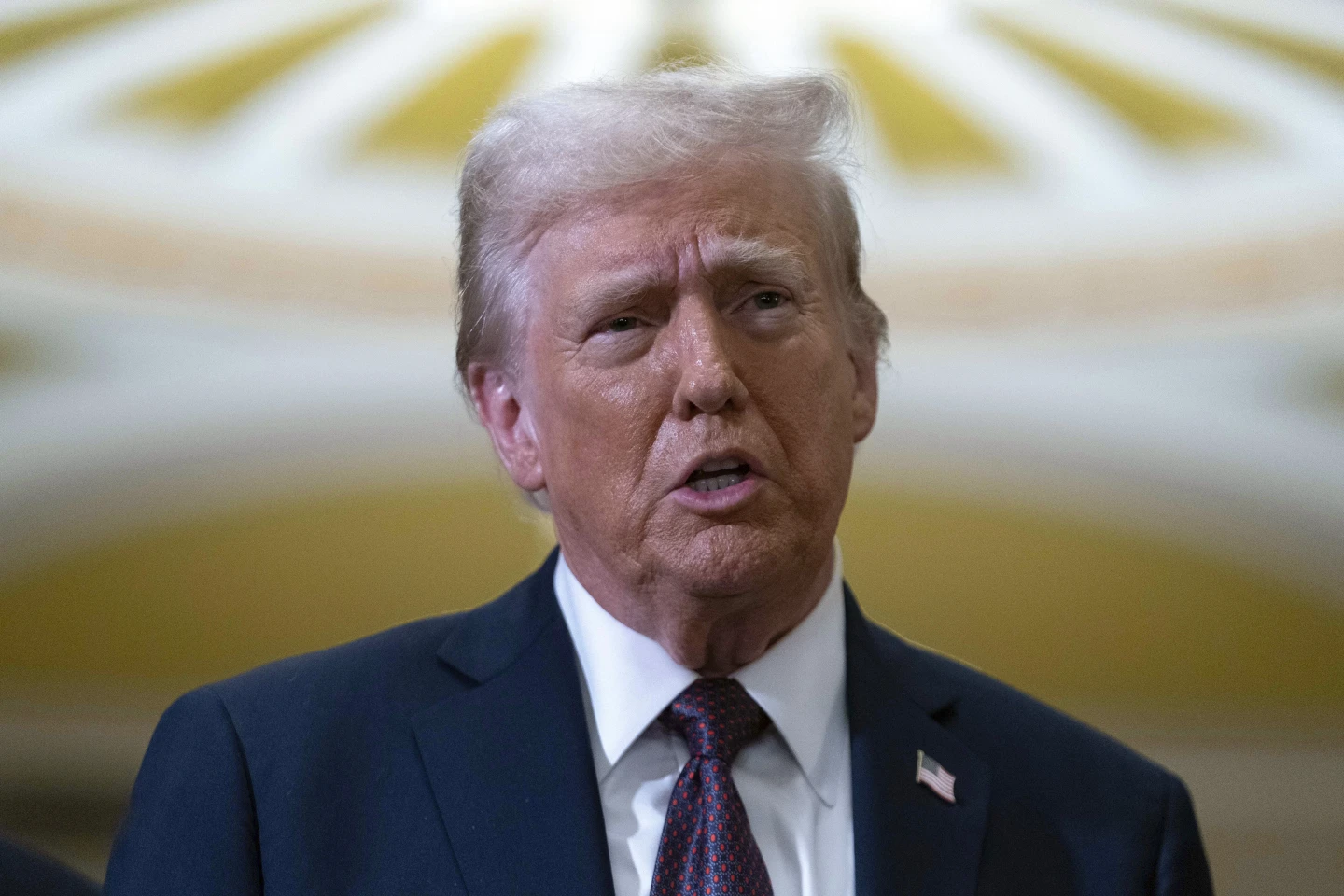











On January 30, 2025, President Donald Trump announced the United States' withdrawal from the Paris Climate Agreement, echoing his previous action from June 1, 2017. This withdrawal will take effect after a one-year waiting period, as stipulated by Article 28 of the Paris Agreement, which allows for withdrawal notices only three years after entry [98348d54]. Trump characterized this move as a declaration of a 'national energy emergency,' which includes plans to increase oil drilling, scrap vehicle emissions standards, and reject international climate finance commitments [98348d54]. This decision comes at a critical time, as global temperatures have surpassed the 1.5 degrees Celsius threshold, with 2024 recorded as the warmest year on record [98348d54].
The implications of Trump's withdrawal are significant, particularly as it may embolden other major polluters to reconsider their commitments to climate action. For instance, Argentina is reportedly reevaluating its participation in the Paris Agreement following the U.S. decision [98348d54]. Laurence Tubiana, a prominent climate advocate, and UN climate chief Simon Stiell have expressed hope that resilient multilateral climate action can continue despite the setback posed by the U.S. withdrawal [98348d54].
Previously, on January 20, 2025, Trump had announced the withdrawal, which was met with widespread criticism as a major setback in global efforts to combat climate change [a2de1bb5]. At that time, he stated, "I am immediately withdrawing from the unfair, one-sided Paris climate accord rip-off," positioning the U.S. as the only country among 193 signatories to exit the accord [372cb12c]. The U.S. had previously pledged to reduce its greenhouse gas emissions by 26-28% below 2005 levels by 2025, a commitment that now faces significant setbacks [372cb12c].
The formal notification of withdrawal was confirmed by UN spokesperson Stéphane Dujarric on January 29, 2025, indicating that the U.S. has officially notified the UN of its withdrawal, effective January 27, 2026 [948d2c4]. This announcement underscores the formalization of Trump’s earlier executive order, which directs the U.S. Ambassador to the UN to submit formal notification of withdrawal [8afc1621]. The order also revokes the U.S. International Climate Finance Plan and mandates reports from federal agencies within 30 days, emphasizing a shift in U.S. environmental policy that prioritizes economic efficiency in future energy agreements [8afc1621].
Historically, Republican Presidents have often exited global agreements, citing economic concerns and national sovereignty as primary reasons. For instance, the withdrawal from the Kyoto Protocol was justified by claims that it would harm the U.S. economy, a narrative echoed during Trump’s exit from the Paris Agreement, which he deemed unfair to the U.S. compared to other countries [51f835b0]. The implications of Trump’s withdrawal are profound, particularly as the U.S. is the second-largest carbon emitter, contributing approximately 21% of the UN climate secretariat's budget and about 15% of global greenhouse gas emissions [372cb12c][22db7832].
Experts predict that under Trump’s leadership, U.S. emissions per capita, which were the highest globally at 17.61 tons in 2023, could increase by an additional 4 billion tons by 2030 compared to Biden’s plans [85b1743a]. This exit halts progress on Biden’s ambitious targets of reducing emissions by 50-66% by 2035 and achieving net-zero emissions by 2050 [22db7832]. Environmental experts warn that Trump’s fossil fuel policies threaten to reverse the modest emission reductions achieved in recent years [22db7832].
In addition to withdrawing from the Paris Agreement, Trump’s administration has halted offshore wind projects and is promoting fossil fuel exploration, raising further concerns about the future of renewable energy in the U.S. [aab2e504]. As of January 27, 2025, Trump has also cut financial support for Electric Vehicles (EVs), further benefiting fossil fuel companies that support him [edba2457]. Critics argue that these policies prioritize short-term industrial growth over long-term sustainability, exacerbating the climate crisis [85b1743a].
In response to the withdrawal, the U.S. Climate Alliance, which represents 24 states, has pledged to cut emissions by 66% by 2035, indicating that many states will continue to pursue climate goals despite federal inaction [22db7832]. This local commitment underscores a growing divide between state and federal climate policies, with states like California and New York continuing to pursue renewable energy goals independently [edba2457]. Governors Kathy Hochul and Michelle Lujan Grisham have vowed to continue climate action despite the federal withdrawal [372cb12c].
Internationally, reactions to Trump’s decision have been overwhelmingly negative, raising concerns ahead of the upcoming COP30 climate talks in Brazil. U.N. Secretary-General Antonio Guterres expressed confidence in local climate actions despite the U.S. decision, while U.N. Climate Change Executive Secretary Simon Stiell emphasized the economic benefits of embracing clean energy [7140d44b]. Notably, China leads global industrial production at 31.6%, followed by the U.S. at 15.9% and India at 2.9% [85b1743a]. Kenyan climate envoy Ali Mohamed stressed the importance of U.S. leadership in climate finance, indicating that the absence of U.S. participation could hinder progress in developing nations [8dd8449a].
Despite concerns about market reactions, research from the University of Technology Sydney suggests that global markets are expected to remain resilient due to ongoing green investments from other countries and the private sector, although short-term volatility may occur [aab2e504]. As the U.S. embarks on this new chapter in climate policy, the implications of Trump’s withdrawal are significant, potentially stalling global efforts to address climate change effectively and raising concerns about the future of international climate agreements [94201fd0]. Climate scientists warn that without significant U.S. emission cuts, global warming is projected to exceed 1.5°C, with the Carbon Action Tracker estimating a potential warming of 3.4°C by 2100 [85b1743a]. States like California and New York remain committed to Paris goals, indicating that while federal policy may shift, local initiatives may continue to push for climate action [034c697a]. Additionally, countries like Bangladesh, which faces severe climate challenges such as rising sea levels and cyclones, are particularly vulnerable to the consequences of U.S. policy shifts, as highlighted by the IPCC's warnings of catastrophic outcomes if emissions are not curtailed [ca75924d]. Furthermore, the World Health Organization (WHO) has called for action against neglected tropical diseases exacerbated by global warming, aiming for 100 countries to eliminate at least one neglected tropical disease by 2030 [948d2c4]. Japan, in response to the global climate crisis, plans to reduce emissions by 60% by FY2035, up from 46% by FY2030, with nuclear power playing a crucial role in achieving this goal [a2de1bb5]. The article emphasizes the need for diverse scientific views on climate change and warns that Japan's future is at risk without prioritizing energy diversification [a2de1bb5].